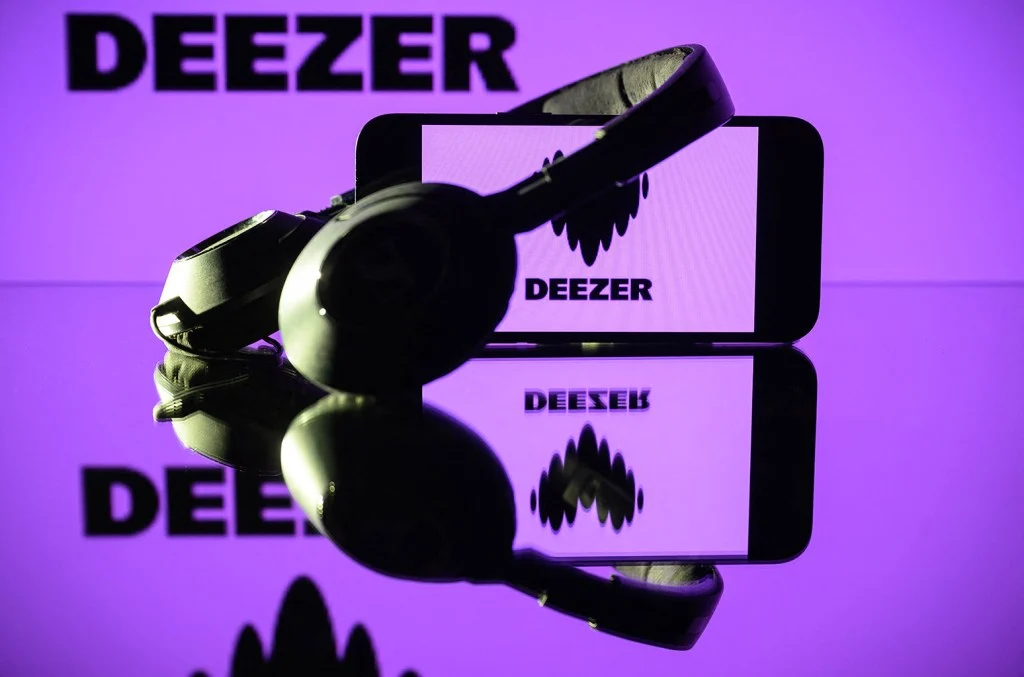Business
Page: 73
After Sleepy Hallow‘s “2055” went triple platinum four years ago, Sony Music’s gaming-and-music team noticed something about the Jamaican-American rapper’s fans: They were gamers. And not just gamers, but Fortnite players.
According to the label’s internal research, Sleepy Hallow fans are 2.5 times more likely to play Fortnite than the national average and twice as likely to play games overall. “It stuck out,” says Alex Ciccimarro, vp of marketing for Sony-owned RCA Records. “Since then, every campaign we’ve worked on with Sleepy, we’ve tried to incorporate gamers.”
The latest project on this front is “The Hallow Heist,” an April 18 virtual-concert event on Fortnite in which a world designed by Sleepy Hallow with his team, employing Epic Games’ user tools known as Unreal Engine for Fortnite, led players to a new music video for “Girls Like Girls.” Hallow, 25, is a longtime Fortnite player who “came in with a bunch of ideas,” Ciccimarro says. The rapper built “The Hallow Heist” with help from his Winner’s Circle Entertainment managers, plus RCA and Sony Immersive Music Studios.
Trending on Billboard
Since the pandemic, a hit Fortnite experience can help an artist build a massive audience. Travis Scott‘s performance drew more than 12 million players in 2020, and 14.3 million experienced last December’s Remix: The Finale event starring Snoop Dogg, Juice WRLD, Eminem and Ice Spice. The user bases of Fortnite, Roblox and other gaming platforms are so potent for artists that one content producer told Billboard last year: “Just the way every artist has an Instagram account and a TikTok, eventually everyone’s going to have a Roblox presence.” Sony’s team has been especially aggressive in this space, including by arranging a virtual concert last October for British singer-songwriter Myles Smith.
“That intersection of gaming and music is a young-consumer-led trend — which obviously is super-important for us, because they’re so influential in breaking new artists,” says Dennis Kooker, Sony Music’s president of global digital business. “We’ve had a lot of young artists that have grown up playing games and know the space really well and have great creative ideas.”
Brad Spahr, senior vp/general manager of Sony Immersive Music Studios, says the Hallow world-creation team focused on a singular question: “What would Sleepy’s brain look like?” Very purple, as it turns out. In “The Hallow Heist,” the rapper’s avatar wears a puffy purple coat as evil robots armed with lasers put him to sleep, while the rest of the game involves players floating, jumping, zip-lining and racing cars through a futuristic purple cityscape. When they finally succeed, Hallow declares, “What a trip. I’ve got this song stuck in my head. Yep, studio time.” The game ends with a trip to a recording studio, where Hallow debuted his new single “Girls Like Girls.” A music video for the track subsequently came out on April 24 and landed 108,000 YouTube views in the first five days of its release. The track has streamed 1.2 million times overall, according to Luminate.
“He was involved the whole way,” says Spahr, whose Culver City, Calif.-based Sony Music team initially emphasized virtual reality when it started nearly 10 years ago, but now emphasizes Fortnite and Roblox in addition to other projects. “He gave us a lot of reference material — things we could work with to build the framework of a creative concept.”
As with all of the Sony team’s projects, Hallow’s Fortnite activation entailed a complex technology design but a simple idea: Reach gamers where they are. “It’s an ‘If you build it, they will come’ situation,” RCA’s Ciccimarro says. “The community wants to be there, and we just gave them something to do.”
The U.S. House of Representatives easily passed the bipartisan TICKET Act in a 409-15 vote on Tuesday (April 29), sending Congress’ first-ever regulatory framework for the event ticketing business on to the Senate.
Sponsored by Reps. Gus Bilirakis (R-Fla.) and Jan Schakowsky (D-lll.), the legislation is meant to improve transparency and disclosure of ticket pricing and fees, ban deceptive marketing practices and improve consumer protections by requiring refunds for cancelled or postponed events.
While the legislation introduces long-sought legal protections for artists and fans, some advocacy groups argue that the bill doesn’t go far enough to curb ticket scalping and warn that its language could inadvertently legalize controversial sales practices, including speculative ticket sales.
Trending on Billboard
“The Ticket Act that just passed the House does not do nearly enough to protect fans and consumers against bad actors,” reads a statement from National Independent Trade Organization executive director Nathan Marro shortly after the bill passed.
At issue is a clause in the bill that Marro and other industry groups like the National Independent Venue Association say create a legal loophole for speculative ticket sales — a highly criticized practice where scalpers sell tickets they don’t actually own, only procuring the tickets after a consumer has agreed to buy them at a substantial markup. Under the language of the TICKET Act a “ticket exchange that does not have actual or constructive possession of an event ticket shall not sell, offer for sale, or advertise for sale such event ticket.” Marro worries that the provision is diluted by a loophole in the legislation which allows secondary sites like Vivid to offer “a service to an individual to obtain an event ticket on behalf of such individual.”
Marro argues that such a service — similar to Vivid’s Seat Saver program, where consumers pay to procure seats before they go on sale to the public, will worsen long-standing public complaints about fair access to tickets.
“Vivid Seats spec ticket ‘seat saver’ program is still 100% legal,” under the current language of the bill, Marro said. “NITO urges the Senate to strengthen this bill prior to passage and we will continue to advocate for stronger protections for our community.”
Stephen Parker, executive director for the National Independent Venues Association, also called out the spec ticket loophole, noting “the inclusion of a ‘concierge service’ carveout, as written in the TICKET Act, would undermine” the legislation. Specifically, Parker asserts that the carve out erodes the trust the public has in the artist — or show presenter — and their ability to fairly and transparently schedule ticket sales. When services like Seat Saver mislead fans into thinking they can buy tickets for high profile events ahead of schedule, Parker says trust in the safety and fairness of the ticket sales process is diminished.
“States across the country have proven that strong, loophole-free ticketing consumer protections work, and Congress should build on that momentum,” wrote Parker, noting that legislatures in Arizona, Maryland, Massachusetts, Minnesota and Nevada all banned speculative tickets sales without carve outs for concierge programs like seat saver.
Parker and Marro have identified other shortcomings with the TICKET Act, including stronger enforcement of the BOTS Act. Marro said his group of talent agents and managers would also like to see greater disclosure around all-in pricing so fans know how much was added to the face value of the ticket by the promoter, the ticketing company and the venue.
The TICKET Act now heads to the U.S. Senate for consideration.
Kacey Musgraves is coming full circle with her new label deal, signing to the recently relaunched, Nashville-based Lost Highway Records. The eight-time Grammy winner was the final artist signed to the label in 2011. In 2012, Lost Highway was absorbed by Mercury Nashville as Musgraves was crafting her debut studio album Same Trailer, Different Park (which contained her breakthrough hit “Merry Go ‘Round”).
Now, she is the first artist signed to the revitalized label.
Trending on Billboard
Lost Highway’s revival was announced earlier this month, with former Thirty Tigers executive Robert Knotts and Universal Music Group Nashville (UMGN) executive Jake Gear serving as co-heads and executive vps of the resurrected label.
“Lost Highway was always a musical stable for artists who might be considered outliers or outlaws; those who live on the fringe,” Musgraves said in a statement. “In 2011, when other record labels questioned my songwriting and my more traditional country sound, Lost Highway believed in me, signing me to my first label deal and helped me take my music around the world. That journey has now come full circle in such a special way with John Janick and Interscope and I’m deeply honored to be able to once again call Lost Highway my musical home.”
Musgraves is celebrating the label deal with Lost Highway Records by releasing her interpretation of the label’s namesake song, the Leon Payne-written “Lost Highway,” which Hank Williams covered in 1949.
John Janick, chairman/CEO, Interscope Capitol and IGA, said in a statement, “Kacey exemplifies the kind of culture- shifting, left-of-center artists that Lost Highway has always been known for. Given the close relationship she’s had with both Lost Highway and Interscope, it seemed only natural for her to be the first artist signed in this new chapter.”
Music exec Luke Lewis, who founded Lost Highway in 2000 and signed Musgraves in 2011, said in a statement: “For 20 years, my job was to run Mercury and MCA labels, which were primarily mainstream country endeavors. The last 10 years of my time there were passionately dedicated to starting and leading Lost Highway, which was the most rewarding time of my entire career. The label went on to cultivate some of the greatest singer/songwriters I have had the honor to work with, and I am extremely proud to have helped them further their amazing musical journeys. I am beyond grateful that this very special label is now in the hands of John Janick, Robert Knotts, Jake Gear and the Interscope team, and I am certain Lost Highway will have an incredible second inning.”
Skaters who have dreamed of nosebone kickflipping the curb in front of the El Rey Theater or landing a 360 Varial McTwist under the venue’s iconic marquee can now live out that dream on Tony Hawk‘s Pro Skater 3 + 4. Both games are set to drop on July 11, according to game maker Activision Publishing, Inc. […]
Luminate has announced a new partnership with Epic Games that will see the entertainment data company begin tracking music usage from Fortnite’s Jam Tracks inside its Connect platform, marking a notable shift in how the music industry monitors fan engagement across gaming platforms.
Announced Wednesday (April 30), the agreement adds Fortnite Jam Tracks to Luminate’s growing “Interactive On-Demand” category, offering labels, managers, and rights holders deeper insight into how music is being experienced and consumed inside Epic Games’ massively popular title.
While the integration reflects growing industry interest in transmedia fan behaviour, particularly in the gaming space, Luminate has confirmed that Jam Tracks streaming data from Fortnite will not be counted toward Billboard charts.
Trending on Billboard
The new feature builds on Luminate’s 2024 mid-year report, which found that tracks featured in Fortnite Festival announcements saw an average 8.7% lift in on-demand audio streams the day after being announced. The company’s 2024 year-end report also highlighted streaming gains for Snoop Dogg, Eminem, Ice Spice, and Juice WRLD, following their involvement in Fortnite Remix, a month-long music activation held in November 2024.
“Luminate is committed to serving the entire entertainment ecosystem with valuable data and insights,” said Luminate CEO Rob Jonas in a statement.
“In today’s increasingly transmedia landscape, where technology is blurring the lines of content and fan experiences across platforms, it’s more important than ever to understand engagement and audience trends in the gaming space and how they overlap with music consumption.”
“We’re witnessing the rise of interconnected experiences, and understanding how audiences interact with these across games, music, and other mediums is crucial. We’re delighted that our new partners at Epic Games understand this need, and we look forward to developing this partnership as the convergence of music and gaming evolves.”
Emily Levy, director of music, talent and influencer at Epic Games, said the partnership will help creators and artists better understand the impact of in-game music experiences.
“Music in Fortnite gives players an authentic way to experience iconic songs through self-expression, creation, discovery and play,” she said. “We look forward to continuing to work with the music industry to tap into unique and immersive ways to connect with new and existing fans.”
Interactive On-Demand streams from Fortnite’s Jam Tracks are currently not a Billboard chart-eligible metric.
Prymax Media & Technology Group has acquired all the remaining masters from the estate of music industry pioneer Stan Lewis, founder of the legendary labels Jewel Records, Paula Records and Ronn Records. While Prymax Media declined to reveal the purchase price, Billboard can exclusively report that the New York-based private investment firm’s acquisition encompasses more than 1,600 songs. Those include recordings by Aretha Franklin, Gladys Knight & the Pips, Willie Nelson, Ike & Tina Turner, Albertina Walker and Lightnin’ Hopkins, among other iconic artists representing America’s golden era of blues, R&B, soul, rock & roll, gospel and country.
Prior to co-founding Prymax Media in 2020, Tyrone Holmes worked primarily as a music and film producer who collaborated with Grammy-winning artist Faith Evans and late Stellar Award-winning artist LaShun Pace, among others. In a statement announcing his firm’s acquisition, Holmes said, “This is about more than just reclaiming music. It’s about preserving cultural heritage and sharing stories that have long been silenced. With the release of this vault, we’re not only honoring the legacy of the artists involved but also opening the door for new interpretations and collaborations in the future. These recordings were hidden treasures, and now we can introduce them to the world.”
Trending on Billboard
Added Beverly Paige, a member of the Prymax team, “This isn’t just an acquisition it’s the recovery of a cultural legacy. We look forward to seeing how this music resonates with lifelong fans as well as invite newcomers to discover the rich legacy of music that has shaped the industry. We’re also excited for the conversations it will spark around the significance and impact of gospel music in our lives.”
In addition to the aforementioned Albertina Walker — aka “The Queen of Gospel Music”— Prymax’s acquisition features released and unreleased recordings by fellow gospel artists Shirley Caesar and Dorothy Norwood, Jimmy Reed, Bobby Rush, John Lee Hooker and Malcolm X. Among the song titles now under new ownership are “Judy in Disguise,” the 1967 No. 1 hit by John Fred and His Playboy Band, “I Feel Good” by John Lee Hooker, “Knock on Wood” by Ike & Tina Turner and “A Message for You” by Curtis Mayfield.
Beyond fully finished tracks, the catalog cache includes rare studio sessions and alternate takes.
Lewis’ industry career began with the opening of Stan’s Record Shop in Shreveport, Louisiana in 1948 (a frequent customer was the yet-unknown Elvis Presley) from money earned selling newspapers. From there at age 20, he established what became the South’s largest independent record distribution network. In addition to Chess Records, where he also worked for a time, Lewis represented several other independent labels such as Atlantic, Checker and Specialty. Moving back to Shreveport after his Chess stint in Chicago, Lewis founded Jewel Records in 1963. Its roster and catalog holdings included Big Joe Turner, John Lee Hooker, Ike & Tina Turner, Aretha Frankline, B.B. King and Fats Domino. Prior to establishing Jewel, he had begun producing music artists while also co-writing with Dale Hawkins the 1957 rock & roll classic “Susie Q.”
Lewis later bought the masters of Chicago blues label Cobra Records in the late ‘60s (home to Buddy Guy). Then came the founding of the Paula (named after his wife Pauline) and Ronn imprints. The former sported a roster headed by The Uniques (led by Joe Stampley), Toussaint McCall, John Fred and His Playboy Band and others.
It was Garland Jones, owner of record store Garland Super Sounds and a longtime Lewis mentee, who helped the latter’s son Lenny outline all the music assets in Lewis’ vault before his death in 2018.
“After a decade-long legal battle, I finally obtained the rights to Stan Lewis’s succession and successfully sold this extraordinary, once forgotten collection of music to Prymax Media,” said Jones. “This partnership now can resonate with and inspire a new generation. The collection also includes the complete unreleased vault from the legendary Q Records and Gramercy Records.”
Attorney Jeffrey D. Garfin oversaw the transaction for Prymax Media. “The material derived from the estate of Stan ‘The Record Man’ Lewis represents a literal time capsule containing hundreds of unknown recordings from incredibly well-known artists,” commented Garfin. “Many of these iconic performers are no longer with us. So to be able to hear alternate takes on their hits and even new material is just fantastic. I’m honored to be shepherding these recordings into the 21st century.”
Apple Music has named Ole Obermann and Rachel Newman as the company’s new co-heads, Billboard has confirmed. The news was first reported by Music Business Worldwide. Obermann, who left his role as global head of music business development at ByteDance earlier this year, worked at the Chinese company for more than five years, having started […]
South Korea’s HYBE used its artists’ heavy touring schedule and strong merchandise and licensing revenues to overcome a slight drop in recorded music sales in the first quarter of 2025.
In the historically slow first quarter, total revenue rose 38.7% to 500.6 billion KRW ($350 million), the second-lowest quarterly revenue since the first quarter of 2023. Earnings before interest, taxes, depreciation and amortization (EBITDA) of 47.3 billion KRW ($33 million) was up 19% from the prior-year period.
“Typically, the first quarter is a period when artists take a break after busy year-end activities and prepare for new albums and projects,” CFO Kyungjun Lee said during the earnings call Tuesday (April 29). “Therefore, in Q1, we had relatively fewer album releases and content offerings, thus posting a slightly lower profitability compared to the prior quarter.”
Trending on Billboard
Recorded music revenue fell 5.9% to 136.5 billion KRW ($95 million), with streaming accounting for almost half of recorded music sales, said CEO Jaesang Lee. “While album sales fluctuate quarter over quarter depending on release schedules, steady streaming revenue serves as a stable source of profit. Streaming helps mitigate recorded music sales volatility in quarters like this quarter, when the number of new albums is relatively smaller.”
Concerts revenue jumped 252% to 155.2 billion KRW ($108 million). CEO Lee cited the “huge success” of tours in South Korea, the U.S., Japan and elsewhere in Asia by J-Hope, TOMORROW X TOGETHER, ENHYPEN and BOYNEXTDOOR. Additionally, J-Hope’s solo shows in Mexico “marked the beginning of active expansion to the Latin market,” he added.
Merchandise and licensing improved 75.2% to 106.4 billion KRW ($74 million). Whereas concert-related merchandise was most popular in the past, HYBE has found success with artists’ character-driven merchandise, such as for Seventeen’s MINITEEN, a group of animal representatives for the band. “All the character products have been selling really quickly, and many items are in high demand, resulting in additional rounds of pre-order sales,” said CFO Lee.
Content revenue fell 32.7% to 41.2 billion KRW ($29 million). It included sales of the Seventeen in Carat Land Memory Book and BTS 7 Moments, an archive of group members throughout 2022 and 2023 that includes a 66-minute video and 180-page photo book.
CEO Lee also teased details of Big Hit Music’s upcoming boy band that will debut in the third quarter of 2025. He described the five-member group as “a next generation creator crew that pursues self-expression in completely new styles and senses” and will perform “very original music that has not existed in the past.”
Separately, a seven-member, all-Japanese boy band called aeon will debut in June. Created by YX Labels, HYBE’s Japanese operation, the group formed from a TV show that aired in Japan on Nippon TV from February to April.
The Honda Center in Anaheim, Calif., is undertaking a $1 billion renovation project that will reimagine nearly every aspect of the seasoned venue, it was announced Tuesday (April 29) by OC Sports & Entertainment (OCSE), an affiliate of the operator of the city-owned venue.
Dubbed Honda Center Encore, the privately funded transformation will happen simultaneously to the ongoing development of the arena’s surrounding campus, OC Vibe — a $4 billion, 100-acre entertainment district anchored by the home of the National Hockey League’s Anaheim Ducks. Both Honda Center Encore and OC Vibe are being funded by the Samueli Family, owners of the Anaheim Ducks and longtime stewards of Honda Center.
Honda Center Encore
Courtesy of OCVIBE
“We don’t want to have the experience of our guests coming in here to be fantastic when you’re outside of our four walls of the Honda Center, and then you walk in and you’re taken back to 1993,” says OC Vibe CEO Bill Foltz. “We’ve kept the place up. It’s an amazing venue. It really needs to be updated. That process actually started a couple of years ago, where we started bringing in designers and architects.”
Trending on Billboard
The Honda Center Encore transformation will include a new five-story south entrance with a grand arrival experience along with a high-impact digital display to host outdoor viewing parties and community events. Foltz tells Billboard that the display will be used to showcase events occurring at the Honda Center in addition to viewing parties for Ultimate Fighting Championship (UFC), as the arena has signed an agreement to be the designated watch party site for the league. The new south entrance will replace the arena’s current facade.
Honda Center Encore
Courtesy of OCVIBE
Once completed — the transformation is due to be finished by 2027 — the arena will have entirely refreshed its food and beverage spaces, including ten brand-new concepts and the introduction of self-service technology to elevate speed and convenience. The transformation will also include a new all-inclusive club on the club level, offering an upscale, hospitality-focused experience for premium guests, with curated food and beverage offerings and unmatched views of the action. The venue will also debut new opera box suites on the main concourse and a full renovation of all 68 existing luxury suites.
Honda Center will additionally install new escalators to improve vertical circulation and introduce four new entry plazas, each with its own distinct social aesthetic. The construction of three new parking structures that will add 6,000 new stalls to the campus is already underway; the new parking options are expected to be complete by October and will increase parking availability by 60%. To keep the parking experience as friction-free as possible, the arena is also eliminating the need for arena guests to purchase parking passes in addition to their ticket.
Honda Center Encore
Courtesy of OCVIBE
“When you buy your ticket, it’s an all-inclusive price, meaning all-inclusive of your parking and access when you get here. So, when you pull in our parking garages, you won’t be stopping to check a QR code or to pay somebody,” says Foltz. “You’ll come straight into the parking garages, which are built for speed of access and exit. We think that step alone will get our fans into the excitement 20 to 30 minutes faster than they’re getting in today.”
One of the few aspects of the building that will remain unchanged is the arena’s iconic floors. The more than 30-year-old building will keep its white and burnt orange Italian marble flooring that “look[s] just the same as it did 30 years ago,” Foltz says, adding that the arena will match the color scheme throughout the renovations.
While the renovations will create more points of sale for attendees (especially those in the upper tiers of the arena), Foltz says the majority of the $1 billion renovation will be dedicated to guest experience over direct revenue enhancement. “The bulk [of the renovation] is making this building brand new so it will last another 50 years,” he says, adding, “We have a contract to run Honda Center through the 2060s.”
Honda Center Encore
Courtesy of OCVIBE
Honda Center Encore
Courtesy of OCVIBE
Deezer’s total quarterly revenue edged 1.1% higher in the first quarter of 2025, the French streaming company reported on Tuesday (April 29), as its top executive reiterated the company’s target to achieve profitability this year.
Deezer reported revenue of 134 million euros ($145.08 million) in the first quarter, driven primarily by 6.3% growth in its direct subscriber base in France, bringing the total number of subscribers there to 3.5 million.
Deezer achieved positive free cash flow and its first break-even year in fiscal 2024, and CEO Alexis Lanternier said the company will achieve positive adjusted earnings before interest, taxes, depreciation and amortization (EBIDTA) in 2025. Deezer expects total revenue for 2025 to be flat or slightly decline from fiscal year 2024, as it forecast no meaningful increase in average revenue per user (ARPU). However, the company maintained it will “generate positive free cash flow for the second consecutive year,” according to a press release.
Trending on Billboard
“We started the year with positive momentum, delivering revenue growth in line with our expectations and further increasing our direct subscriber base in France,” Lanternier said in a statement. “With confidence, we confirm our 2025 guidance and our objective of reaching profitability this year.”
Founded in August 2007, Deezer has embarked on a range of initiatives aimed at achieving profitability, including raising prices on its direct subscribers in France; doubling-down on its strategy to gain subscribers through partnerships with companies like the German broadcaster RTL, American speaker company Sonos and Latin America’s Mercado Libre; and through the introduction of new customization features for users and opportunities to directly interact with artists.
Deezer’s total subscriber base now stands at 9.4 million, down from what it said was 10 million subscribers on a like-for-like basis in the first quarter of 2024. Of those 9.4 million subscribers, 5.3 million are direct subscribers, mostly in France, while 4.1 million subscribers come from partnerships. Revenue from Deezer’s direct subscriber base contributed 86.6 million euros ($93.8 million), up from 86 million euros ($92.8 million) a year ago. Partnership subscribers contributed 39.2 million euros ($42.4 million), down from 43.3 million euros ($46.7 million) a year ago.
The decline in partnership subscriptions, which drove an overall 3.4% drop in the revenue Deezer receives from countries outside of France, was primarily due to the conversion of users who came to Deezer through its partnership with Mercado Libre called MeLi+. Some promo users converted to premium users “with higher [average revenue per user] & margins,” the company said. The decline in partnership subscriptions and revenue was partly offset by a ramp up in Deezer’s partnership with RTL+, the company said. Deezer renewed long-term partnerships with Bouygues and Orange in the first quarter.

 State Champ Radio
State Champ Radio 









